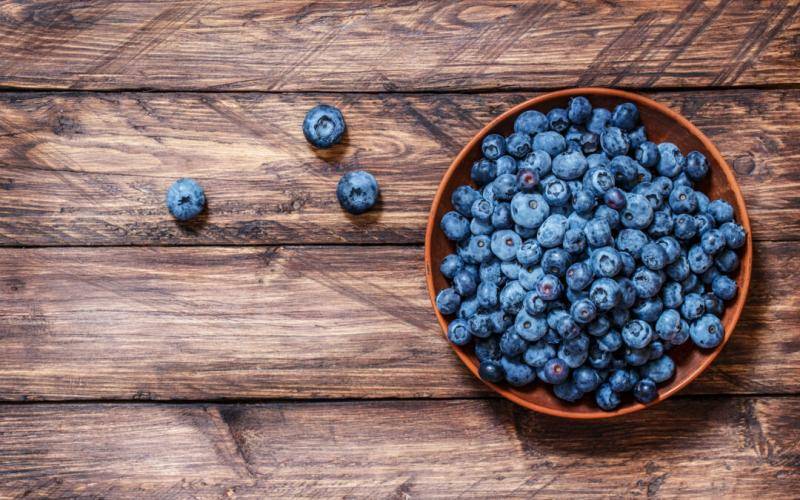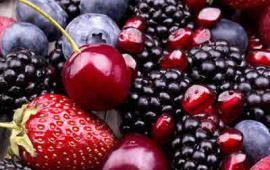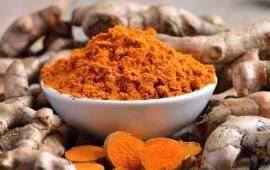Quercetin is a type of flavonoid compound that comes from nature and is widely found in our diet.
Numerous studies have shown that quercetin has anti-inflammatory, antioxidant and anti-cancer effects.
Both in vivo and in vitro studies show that quercetin can exert antitumor effects by altering cell cycle progression, inhibiting cell proliferation, stimulating apoptosis or cell death, inhibiting the progression of angiogenesis or formation of new blood vessels that feed the tumor and metastases.
The foods rich in quercetin are: red onion, capers, elderberries, blackberries, blueberries, broccoli, cauliflower, turnips...among others.
Aerobic glycolysis as a source of energy for tumor cells
Cancer cells compete for nutrients with other cell types, which are part of their microenvironments. Therefore, uncontrolled cell proliferation and tumor formation induce metabolic reprogramming. Because the tumor environment is nutrient limited, it is important that these cells have a mechanism to support the energy demand for cell proliferation and growth.
It has also been described that a change in glucose metabolism occurs in cancer cells called the "Warburg Effect."
Basically, in cancer, cells obtain energy through aerobic glycolysis, in contrast to the more energy-efficient oxidative phosphorylation as occurs in normal cells. This change in cellular metabolism is beneficial for cancer progression and resistance to therapy. Aerobic glycolysis is an inefficient way of producing energy because it only generates 2 ATP per molecule of glucose, compared to oxidative phosphorylation, which generates 36 ATP per molecule.
That is, the cancer cell needs much more glucose than the normal cell to meet its energy needs for growth. Because of this, inhibiting glycolysis appears to be a key strategy for preventing and/or treating cancer.
The important thing is to inhibit both the glycolytic and mitochondrial pathways for ATP production. This approach appears to be the most efficient in killing cancer cells and is part of the metabolic therapy of cancer.
Various studies have shown that quercetin blocks both glycolysis and mitochondrial functions of tumor cells, cutting off the energy production of the tumor cell.
Studies have shown that quercetin decreases glycolysis in tumor cells of breast cancer and in acute myeloblastic leukemia.
Quercetin has also been shown to have antiproliferative and apoptosis or cell death in liver cancer.
In combination with chemotherapy and radiation therapy, quercetin acts synergistically to increase the sensitivity of the treatment while protecting healthy cells from adverse effects.
Scientific studies on quercetin in cancer treatment
- Wang H, Dong Z et al. (2023). Mechanisms of Cancer-killing by Quercetin; A Review on Cell Death Mechanisms. Anticancer Agents Med Chem. 2023;23(9):999-1012. doi: 10.2174/1871520623666230120094158. PMID: 36683373.
- Yang H, Xu S, Tang L et al. (2022). Targeting of non-apoptotic cancer cell death mechanisms by quercetin: Implications in cancer therapy. Front Pharmacol. 2022 Nov 16;13:1043056. doi: 10.3389/fphar.2022.1043056. PMID: 36467088; PMCID: PMC9708708.
- Asma Vafadar et al (2020). Quercetin and cancer: new insights into its therapeutic effects on ovarian cancer cells. Cell Biosci (2020) 10:32. doi.org/10.1186/s13578-020-00397-0
- Xinxing Lu et al (2020) Quercetin reverses docetaxel resistance in prostate cancer via androgen receptor and PI3K/Akt signalling pathways. Int. J. Biol. Sci. 2020; 16(7): 1121-1134. doi: 10.7150/ijbs.41686
- Yan Dong et al (2020) Quercetin Inhibits the Proliferation and Metastasis of Human Non-Small Cell Lung Cancer Cell Line: The Key Role of Src-Mediated Fibroblast Growth Factor-Inducible 14 (Fn14)/ Nuclear Factor kappa B (NF-kB) pathway. Med Sci Monit. 2020 Mar 30;26:e920537. doi:10.12659/MSM.920537.
- Xinxing Lu et al. (2020) Quercetin Inhibits Epithelial-to-Mesenchymal Transition (EMT) Process and Promotes Apoptosis in Prostate Cancer via Downregulating lncRNA MALAT1. Cancer Management and Research 2020:12 1741-1750. doi: 10.2147/CMAR.S241093. eCollection 2020.
- Xiangyu Zhang et al. (2020). Quercetin Enhanced Paclitaxel Therapeutic Effects Towards PC-3 Prostate Cancer Through ER Stress Induction and ROS Production. Onco Targets Ther. 2020 Jan 16;13:513-523. doi: 10.2147/OTT.S228453.
- Si-Min Tang et al (2020). Pharmacological basis and new insights of quercetin action in respect to its anti-cancer effects. Biomedicine & Pharmacotherapy 121 (2020) 109604. doi.org/10.1016/j.biopha.2019.109604.
- Marjorie Reyes-Farias et al. (2019). The Anti-Cancer Effect of Quercetin: Molecular Implications in Cancer Metabolism. Int. J. Mol. Sci. 2019, 20, 3177; doi:10.3390/ijms20123177.
- Paula Fernández-Palanca et al. (2019). Antitumor Effects of Quercetin in Hepatocarcinoma. In Vitro and In Vivo Models: A Systematic Review. Nutrients 2019, 11, 2875; doi:10.3390/nu11122875




